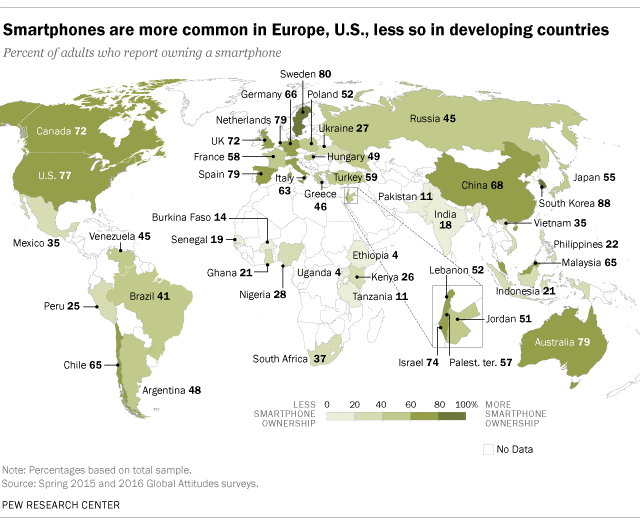
If your smartphone has morphed into an appendage, you’d better take heed. It’s making you dumb!
Every time you participate in social media, read blog posts, or check the latest marketing news, they impede your brain’s reasoning and performance.
So what happens to our minds when we allow a single tool such dominion over our perception and cognition? Scientists have begun exploring that question—and what they’re discovering is both fascinating and troubling. Not only do our phones shape our thoughts in deep and complicated ways, but the effects persist even when we aren’t using the devices. As the brain grows dependent on the technology, the research suggests, the intellect weakens. Wall Street Journal
The WSJ reports these additional disturbing results:
The integration of smartphones into daily life appears to cause a “brain drain” that can diminish such vital mental skills as learning, logical reasoning, abstract thought, problem solving, and creativity. (Adrian Ward, a cognitive psychologist and marketing professor at the University of Texas at Austin)
When people call up information through their devices, they often end up suffering from delusions of intelligence. They feel as though “their own mental capacities” had generated the information, not their devices. “The advent of the ‘information age’ seems to have created a generation of people who feel they know more than ever before,” the scholars concluded, even though “they may know ever less about the world around them.”
Because the phone is packed with so many forms of information and so many useful and entertaining functions, it acts as what Dr. Ward calls a “supernormal stimulus,” one that can “hijack” attention whenever it is part of our surroundings—which it always is.
And, from “Brain Drain: The Mere Presence of One’s Own Smartphone Reduces Available Cognitive Capacity” Journal of the Association for Consumer Research:
The mere presence of one’s own smartphone may occupy limited-capacity cognitive resources, thereby leaving fewer resources available for other tasks and undercutting cognitive performance.
If more people heard about this new information, I wonder if they would change their smartphone habits? As it stands now, usage statistics are astounding. Check out this Pew Research Center data:
- About three-quarters of U.S. adults (77%) say they own a smartphone.

- Americans are using their phones for a variety of nontraditional phone activities, such as looking for a job, finding a date or reading a book.
- The smartphone is becoming an important tool for shoppers.
- Growing shares of Americans – especially those who are lower-income – rely on smartphones to access the internet.
- Some 46% of smartphone owners said their smartphone is something “they couldn’t live without.”
- Around the globe – including in advanced economies – a digital divide in smartphone ownership still exists between the young and old, and between more educated and less educated people.
From the Digital in 2017 Global Overview report:
- More than half the world now uses a smartphone;
- Almost two-thirds of the world’s population now has a mobile phone;
- More than half of the world’s web traffic now comes from mobile phones;
- More than half of all mobile connections around the world are now ‘broadband’;
- More than one in five of the world’s population shopped online in the past 30 days.
Smartphones have caused societal problems prior to this study. Walking and traffic accidents have increased. Young people are not spending as much time with their peers in social interaction, affecting their psychological well-being.
People are having less sex and sleep. They have become intolerant to boredom.
Using a smartphone negatively affects one’s body parts (such as fingers and neck), vision, as well as thoughts and emotions.
So, where does this leave us as marketers especially when mobile marketing has become more and more effective worldwide?
I don’t have any answers. But, I hope this new data reaches more people and elicits discussion and debate.
Will this research affect your smartphone use?













